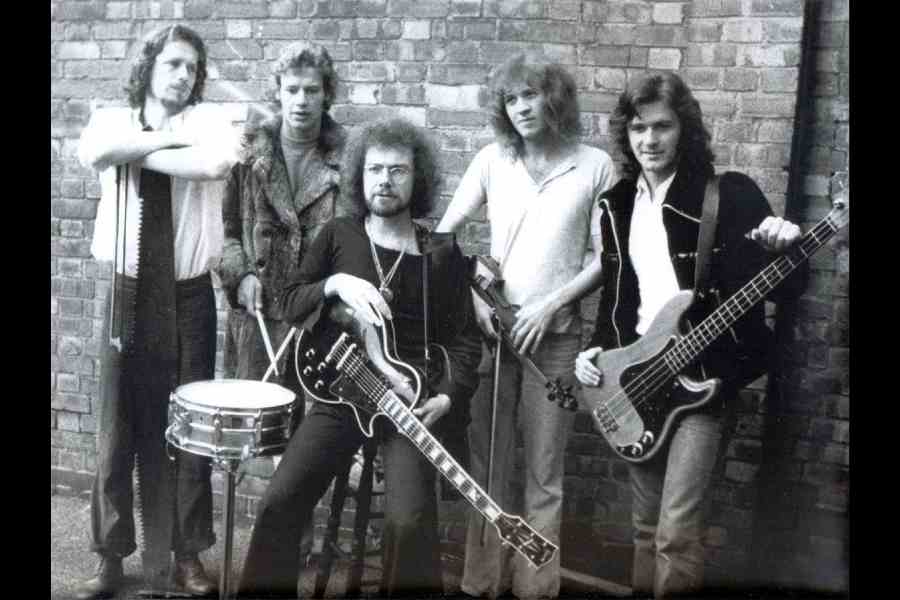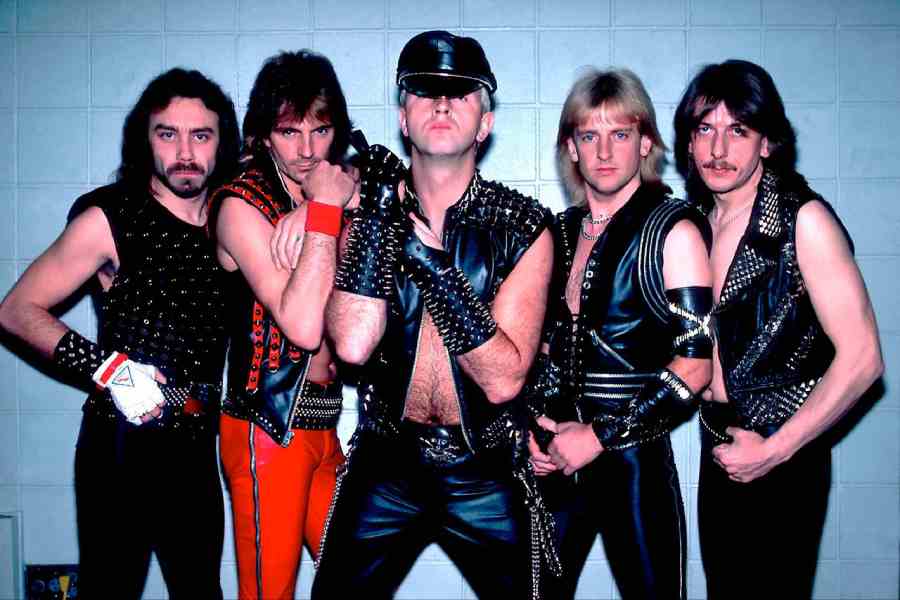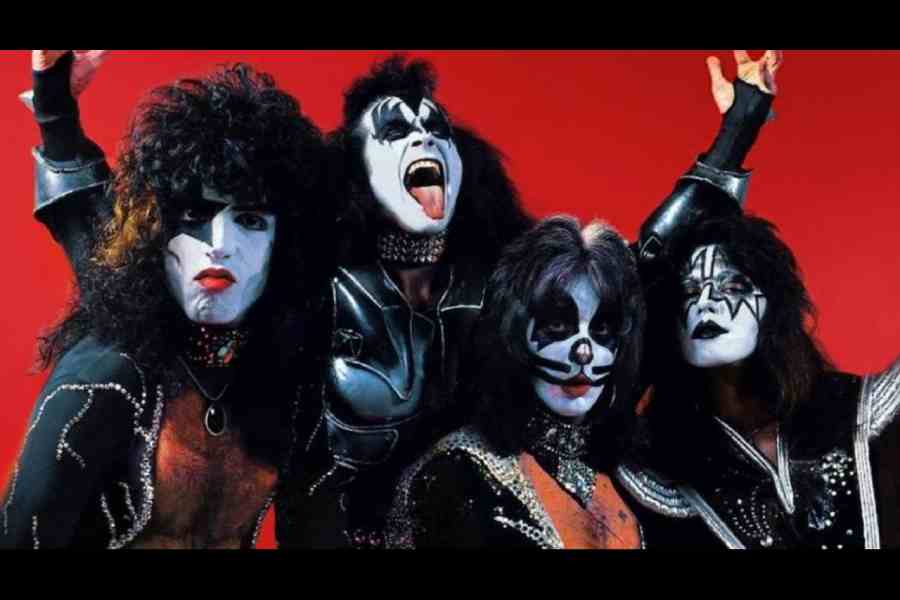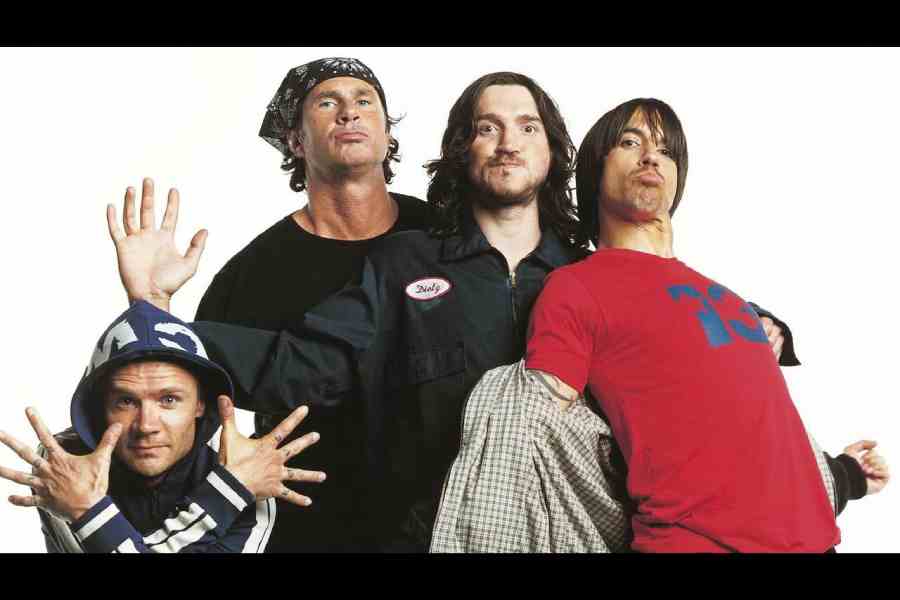Deep Purple: Burn
In 1974, Deep Purple released their eighth studio album following the departure of Ian Gillan, the band’s most successful vocalist till date. Despite challenges, the new recruits, the then-unknown singer David Coverdale and bassist and vocalist, Glenn Hughes, proved to be an astonishingly divine blend with the classic lineup of Blackmore, Lord and Paice. The result was Burn, which although mirroring a noticeable shift from the band’s heavyweight, proto-metal sound to a rock-and-soul direction, proved nevertheless to be a timeless statement in hard rock. Even after half a century, this album stays compelling due to its versatility, be it the ferocious and energetic title song and opener or the bluesy and melancholic Mistreated.
King Crimson: Red

Nobody who comes across King Crimson’s seventh album will outrightly realise that it is now half a century old, and realise if they do, this record’s perpetual freshness gracefully shuns it. More than just an album, Red is a statement of meticulous perfection, a merger of possibilities that breathed fresh life into the progressive rock genre, then overflowing with dizzying excesses of guitar scales and time signatures. Although these traits were no stranger to King Crimson, in Red they managed to shape these into a highly infectious, atmospheric, mournful yet no less heavy and ambitious output. This was also the album following which the band went on a hiatus until its resurrection in 1981.
Judas Priest: Rocka Rolla

About to release their 19th studio album this March, the NWOBHM (new wave of British heavy metal) veteran Judas Priest launched their stupendous career with this debut album, Rocka Rolla, half a century ago. Considering Priest’s reputation as a crucial shaper and pioneer of the British heavy metal sound, Rocka Rolla appears quite different in its sonic makeup because of the bluesy, hard-rock style it possesses. Yet, one can identify in this album’s efficient shifts from soulful singing to soaring falsettos over distorted guitars and rumbling bass, the blueprints that later shaped the band’s signature sound. Numbers like the title track, Run of the Mill, Never Satisfied, Dying to Meet You, continue to make this classic record an enriching revisit.
David Bowie: Diamond Dogs
The eighth full-length album in David Bowie’s discography, which was released 50 years ago, has aged like fine wine. This record followed the disbanding of Bowie’s backing band, the Spiders from Mars, and saw the British singer playing the lead guitar himself, thus giving it the scratchy, off-kilter sound so characteristic of songs like Candidate and especially, Rebel Rebel. Initial plans of making this album a rock adaptation of the dystopian classic and Bowie’s favourite novel, George Orwell’s Nineteen Eighty-Four, did not see fruition except for some indirect references through songs like 1984 and Big Brother. Boundlessly expressive, this art-rock album still manages to pique curiosity in just 38 minutes of its overall runtime.
Kiss: self-titled

It was in the year 1974 that the four painted faces, now so iconically recognisable and readily associated with the rock ’n’ roll genre, surfaced for the first time on a physical pressing. Kiss is definitely an important band in American music history, and largely paved the way for the commercially successful subgenre of glam metal emerging in the 1980s. Despite being overlooked at the time of its release, their debut self-titled album was the first embodiment of the raunchy, electrifying yet catchy style of songwriting that Kiss would perfect to the prime in a few years. Classic numbers like Strutter, 100,000 Years and Black Diamond are self-evident of the timelessness of this record.
The white stripes: Self-titled

The duo of Jack and Meg White became quite significant in the late 1990s and early 2000s Detroit music scene as The White Stripes. While their highly popular opus, Seven Nation Army, has seen its use from football stadiums to movies, the band’s debut self-titled 1999 album was what kickstarted their remarkable journey. Although mirroring the duo before they perfected their craft to the epitome, this debut album is a bombarding testament to their raw expressive potential. Turning 25 this year, this unapologetically gritty and muddy-sounding record still packs a punch, from heavy numbers like The Big Three Killed My Baby and Cannon to melancholic ones like One More Cup of Coffee.
Chris Cornell: Euphoria Morning

After Soundgarden split up in 1997 (they reunited later), following the release of their landmark fourth album Superunknown and then a fifth, rather less ambitious follow-up titled Down On the Upside, vocalist Chris Cornell opted for a solo career. Euphoria Morning, his first album, saw light in 1999 and mirrored quite a remarkable shift from the ferocious grunge-oriented style of his former band. Despite its alternative rock makeup, this album is an experimentation of sorts that defies strict labels, put together by Cornell’s flair for innovative songwriting. Moreover, its craftful lyricism feeds off of some troubled times in his life. Later re-released as Euphoria Mourning, this album is an impeccable gem with numbers like Preaching the End of the World, When I’m Down, Pillow of Your Bones and so on and a must-revisit for any Chris Cornell admirer.
Red Hot Chilli Peppers: Californication

Of the many rock music gems seeing their silver or golden jubilees in 2024, this iconic album happens to be one. The band’s seventh album, Californication, saw the return of John Frusciante, whose minimal yet astonishingly diverse guitar craft alongside cut-through bass grooves by Flea, Chad Smith’s brilliant rhythmic and percussive sense and Anthony Kiedis’s funky vocals, defines this record. Throughout its 57-minute runtime, this album displays a perpetual flow of energy, never shying away from incorporating various moods and expressive modes in its repertoire. Undoubtedly, Californication never ceases to be played in repetition, but its 25 years of existence calls for a must revisit.










